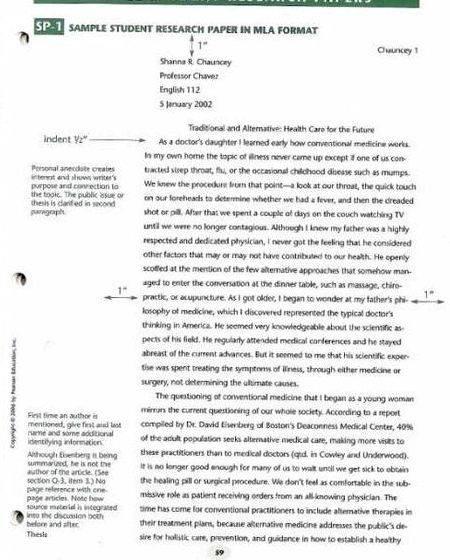In this post, I’m going to guide you through how to write a literature review on any topic from scratch, even if you haven’t read a single paper yet.
How to write a literature review from scratch
1. Pick a topic
It can be as broad as you like, because this is just a starting point. If you are still picking your specific topic for your PhD, that’s fine, but you should at least know roughly what area you want to explore.
2. Find your way in
A quick google scholar search for your subject area could turn up as many as 1 million results. Clearly you can’t read them all, so you need to look for an easy way in.
The vast majority of academic papers are written for people already familiar with the subject. They will refer to theories and methodologies assuming that the reader knows what they are.
So to start with just any paper at random would be a demoralizing waste of time, as you’ll be overwhelmed by the jargon. Instead, you need something you can understand easily to give yourself a foundation of knowledge to build upon.
Textbooks and review articles can be good places to start, though even these can be highly technical. If you can’t find one you can understand easily, then look for a book written for the general, non-academic public.
The idea is to gain a quick, broad background knowledge before getting into more specialised technical detail.
3. History, people ideas
The idea of a literature review is to give some background and context to your own work. You need to show how your research fits into the big picture, relating it to what has been done before.
You don’t need to write a comprehensive history of your subject, but it helps if you know roughly how it has developed over time.
So as you read a few general introductions to your topic, you’ll start to get an overview of the key ideas and theories, who developed them, and when.
Also note any conflicting ideas, any controversy or disagreement in the field, as you’ll need to know this kind of thing.
Now you can start to look for specific papers.
4. Find the world-changing literature
Once you know who the world changers were, you can go in search of their papers.
You need to make sure you understand these key concepts, as they will help you decipher other papers which built upon these ideas.
Sometimes, those world changing papers can be tough to read, but as long as you know roughly what they did and understand the key principle, that’s enough.
5. Get specific
Only once you have a grasp of the key ideas in your field should you get more specific.
There may be several angles you can take in your research, and you may have to explore many areas of the literature. So divide your literature search into sections to make it easier to manage. For each section, think of several keywords to try out in different combinations.
6. Filter
Even when you look at highly specialised sub-topics, there may still be thousands upon thousands of papers, so you need to filter them. Here are a few ways to reduce the numbers:
- Look at the number of citations as an indication of quality
- Make your keywords more specific
- Scan the abstract and make a quick decision as to whether it will be relevant or not
Don’t be afraid to reject papers.
You can always come back to them later, but you have to start with something manageable.
7. Filter again
You might not be able to read everything in depth immediately. From the papers you selected, give them a ranking A, B, or C.
A = must read. highly relevant, high quality
B = unsure. probably relevant, but not yet sure how
C = probablyirrelevant. not what you thought it was when you read the title
If you’ve printed them. put the letter A, B, or C on the front so you can tell quickly when you come back to them (maybe months or years later)
8. Use other people’s bibliographies
Even if you can only find one good quality paper, read the introduction carefully and see who they cite. There may be a few gems there you didn’t find with the search engine.
Also see who else has cited that one paper since it was published (this is also a very quick way to update your bibliography if you are coming back to it a year or more later).
9. Get to know the big players
In any research field, no matter how specialised, there will be leading experts or competing research groups. Figure out who they are, and read their work.
10. Make sure your research idea is original
As the saying goes, you can’t prove a negative. How can you prove that nobody else has done what you plan to do, without searching every paper ever published?
Well, it’s worth spending a day or two searching every keyword combination you can think of related to your specific research plan.
11. Write about ideas
When you finally start writing your literature review, focus on ideas and use examples from the literature to illustrate them.
Don’t just write about every paper you have found (I call this the telephone-directory approach), as it will be tedious to write and impossible to read.
The aim should always be to cite the best and most relevant research, rather than going for sheer quantity.
12. Remember, you aren’t writing a textbook
So you can leave out big chunks. Write about what is relevant to your research.
13. Vary the detail
When talking about a broad topic, only cite the very, very best papers. You’ll have a lot to choose from. so why choose anything but the best?
Then when you get into more specialised sections, you can include a larger number of less well-known papers (but still the highest quality you can find).
14. Don’t cite anything&…
Don’t cite anything you haven’t read or don’t understand
15. Get experience
Your perspective on the literature will be quite different once you have done your own research. If you are in your first year, get your literature review done quickly so you can move on with your own work, and don’t let it hold you back.
It takes time to figure out what makes a good paper and what makes a bad one, and that comes with experience of carrying out research, talking to other researchers, and just reading more.
Reader Interactions
Comments
Clara Tang says
I am a first year PhD student in criminology at my proposal writing stage. I am of the view my literature review at this stage is just to familiarize myself with the key readings around my research how they relate to my expected findings and to demonstrate there is some degree of original contribution. My view is proposal allows the university, and my supervisor, to send me off into the field with some comfort I have thought about what I am going to do.
Most students are approaching this literature review in the proposal as a way to “finish a chapter early in their thesis”. I find this approach illogical, as how can you possibly know what your literature review will be about until you have completed your research? it seems massive waste of time when i could be collecting data in the field on my reserach. Am I being careless? Any thoughts would be welcomed.
James Hayton says
I agree, writing a lit review chapter at the start isn’t the best approach. After a few years working in the field you should be able to write a much better review at the end of your PhD, so even if you do write a chapter now it will inevitably need rewriting later.
That said, you should be able to provide some background and context to your proposal by referring to the existing literature.
Clara Tang says
Perfect. Thanks for keeping me sane.
Thank you for sharing all this info. I have a question related to reading for the Lit Review. I am trying to work in a systematic way with my PhD. I have have collected theses and scientific articles related to my topic. My question is: do I need to read the entire theses and articles or can I simply focus on the Abstract and conclusions?
James Hayton says
It’s not a question of one or the other- for particularly important sources, you may need to read them several times in great detail- others you may just skim read and some you might only read the abstract (though you shouldn’t cite anything you haven’t read beyond the abstract).
OK- got you. Thanks for your prompt reply.
Hi
When writing a Literature review do I need to write my personal thoughts in each paragraph? depending on what is written?
James Hayton says
Not in every paragraph, no. For example, you can say, &”since the theory of &… was first proposed by &… in &…, there has been extensive research into the effects of &…&” You don’t need to say what you think of it if it’s a quick summary of something everyone in the field already knows. It really depends whether you have personal thoughts you think are important to communicate in that particular paragraph.
Kaahwa Mark says
Hey James,
Thanks so much for all your brilliant ideas on research. I am a PhD student in my first year. Will read over and over again to grasp and internalize these ideas.
My question is how do I know that, I have reviewed enough literature and that is where I am supposed to stop?
James Hayton says
You never stop as long as you’re an academic&… but if you’re writing then there have to be some constraints. Some areas of the literature, it’s enough just to have a rough idea what’s going on, other areas you constantly need to stay up to date (keep an eye on your direct competitors).
James Hayton says
Gail Hunter says
This was a very helpful guide. I charted about 50 articles by topic, year, journal, and author. And then I grouped about 20 by subtopic. This semester I will plow ahead writing how my ideas fit or differ from each if them. Then I’ll add about 15 more and voila! Connecting with some if the researchers on ResearchGate has been quite inspiring, I must say.
James Hayton says
I’m not sure I was clear enough in the blog post, as what you’ve described doesn’t sound like my method for lit reviews.
I’m also working on a corner of my field that hasn’t really been touched, but I’ve found that my research bridges the gap between two areas that have had significant work done in them. Maybe that would be a good place to start? If it were me, I’d figure out exactly where my research fits into the big picture, and then build a bridge between the nearest pieces of solid ground.
Gail Hunter says
This was a very helpful guide. I charted about 50 articles by topic, year, journal, and author. And then I grouped about 20 by subtopic. This semester I will plow ahead writing how my ideas fit or differ from each if them. Then I’ll add about 15 more and voila!
Nana Amoah says
Trust me! I am in the middle of writing my Literature review chapter and decided to just take a cursory look around to see what help I could get from anywhere&…..this Helped! It sure did!
Hi, although my research topic is quite specific, it draws on a massive amount of literature that has been thoroughly reviewed by a number of outstanding authors. My question is, would it be reasonable to take advantage of those reviews,(i.e. cite them) and concentrate my own lit review on those topics/articles that have built on their work?
Hi James, i realy liked the idea of categorising the literature.Very thanks
Categorizing articles to A, B, C and D is one great idea. I am going to do that because i have hundred of articles that i havent finished reading and do not know which to read first!
I think you have noted some very interesting points. appreciate it for the post. gdaegkakaccd
Hi, I’m writing my first lit review for an honors paper and I need so help clarifying a issue. Let’s say most studies looked at A and C, but in my study I want to look at what will happen if we look at B.
Now apart from sketching the background of your area etc. they say you should show and talk about where your research (B) fits into the picture and what you will be looking at.
Where in your lit review do you put this in, its own section or try to work it into various other sections? Do you talk in future tense about this or what?
Any help would be greatly appreciated.
Good suggestions! Great recommendation about rating the importance of articles as a way to filter through what may or may not be relevant&…simple concept but something i always grapple with.
Eleanor Skidmore says
How many papers should I research for my literature review? My tutor says I should have 30 references in my bibliography. but will I need to look at more?
If your tutor says 30, aim for about 30. If you think there are a few more you want to put in, put a few more in.
Go for quality and relevance, don’t worry about the number.
Primary Sidebar





 Writing doctoral dissertation systematic approach to problem
Writing doctoral dissertation systematic approach to problem Dissertation writing services uk reviews of lg
Dissertation writing services uk reviews of lg Dissertation online rwth aachen vpn
Dissertation online rwth aachen vpn Creative writing phd dissertation writing
Creative writing phd dissertation writing Monash university singapore early childhood studies dissertation
Monash university singapore early childhood studies dissertation






